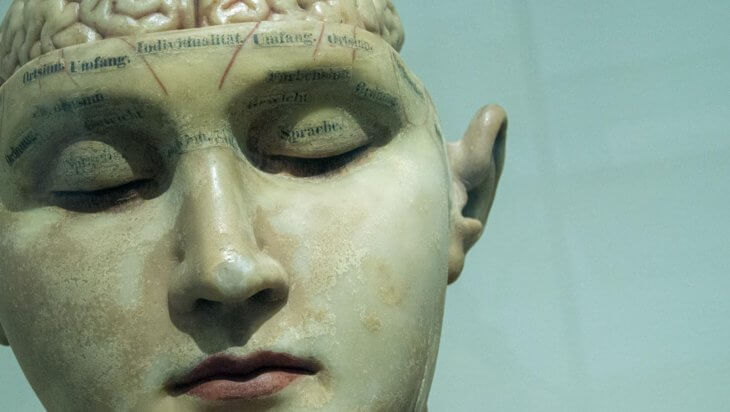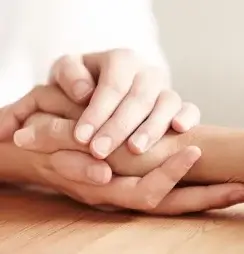
What Does Having An “Addictive Personality” Really Mean?
-
Mandeep Sandhu
 13 Apr 2023
13 Apr 2023
Your idea of someone with an “addictive personality” is probably inaccurate. In pop culture, this persona is associated with specific traits or characteristics that are recognizable just by looking at someone. However, in reality, having addictive tendencies and living with addiction is hardly so simple. Unfortunately, as is so often the case, much of the conversation surrounding addiction is clouded...
learn more

ADHD and Alcohol: How They Interact
-
Mandeep Sandhu
 6 Apr 2023
6 Apr 2023
In today's fast-paced world, coping with life's challenges can feel challenging and complicated. However, for those living with Attention-Deficit/Hyperactivity Disorder (ADHD), it can sometimes feel like an impossible task. While it’s important to note that not everyone who has ADHD also has a substance use disorder, research has found they often co-occur. But what is the link between ADHD and...
learn more

What is Harm Reduction and How Does it Work?
-
Mandeep Sandhu
 30 Mar 2023
30 Mar 2023
There is no one-size-fits-all approach to treating patients with addiction. Addiction is a complicated, multi-faceted illness that can arise from several different causes. It can take many forms and manifest in various ways. Harm reduction addresses these issues by offering inclusive and flexible solutions. By allowing people who use drugs (PWUD) to recover and thrive on their own terms, harm...
learn more

Talking About Mental Health With Your Children: A How-To Guide
-
Mandeep Sandhu
 22 Mar 2023
22 Mar 2023
Around 70% of adults with mental health issues first experienced symptoms before they turned 18. Unfortunately, less than 20% of Canada’s youth suffering from mental illness receive treatment. Talking about mental health is something you can do to equip your children with the knowledge they need to dissect complicated feelings; no matter if they are struggling or not. Here are...
learn more

Recognizing Depression in Teens: The Signs You Need to Know
-
Mandeep Sandhu
 15 Mar 2023
15 Mar 2023
Depression in teens can manifest in various ways. What may seem like normal teenage behaviour or the result of hormonal changes could be the beginnings of teen depression. Recognizing the symptoms right away is your best chance to help them through it. Depression in teens is different than in adults because they are exposed to different triggers, environments and challenges....
learn more

Opiate vs Opioid: Key Differences
-
Mandeep Sandhu
 8 Mar 2023
8 Mar 2023
Opioids and opiates are drugs used in the treatment of moderate to severe pain. The main difference between the two is that opiates are naturally-derived, while opioids are synthetic. However, they are both powerful analgesics with serious risks and side effects. Because of this, they are often reserved for severe cases despite their widespread effectiveness in treating patients of all...
learn more

Harm Reduction vs. Abstinence Drug Treatment
-
Mandeep Sandhu
 16 Feb 2023
16 Feb 2023
When deciding to seek treatment for drug addiction—either for yourself or a loved one—one of the questions we often ask is, “which option should I choose?” Knowing the differences between harm reduction and abstinence treatment options will help you make more informed decisions, especially when it comes to your finances, availability, effectiveness of the treatment, and safety. In this article,...
learn more

What Are the Types of Therapy for Addiction?
-
Mandeep Sandhu
 9 Feb 2023
9 Feb 2023
The purpose of therapy, despite the stigma associated with it, is to benefit the health of patients and prevent relapses. Therapists provide a safe, non-judgmental environment to help patients explore their thoughts, feelings and behaviours. Through this exploration, patients can gain insight and develop effective strategies to cope with the challenges they face. This can lead to improved mental well-being...
learn more

Women and Substance Abuse: Overcoming Addiction
-
Mandeep Sandhu
 26 Jan 2023
26 Jan 2023
Addiction recovery programs should take into account all aspects of a women's journey to treatment instead of following a generic approach. Substance abuse disorder (SUD) among women involves unique risks and patterns. Recognizing these can help improve the prevention and treatment of SUD. Let’s take a closer look at women and substance abuse and the crucial role biology plays in...
learn more

How Thought Suppression Can Help You Stay Sober
-
Mandeep Sandhu
 19 Jan 2023
19 Jan 2023
Do you believe in mind over matter? If you’ve ever heard of the placebo effect, then you’re probably aware that thoughts have a measurable effect on one’s wellness. While its positive effects are usually limited to getting relief from psychological stressors like insomnia, it is evidence that thoughts can influence physical outcomes. What if you could utilize your mind to...
learn more
 1-888-241-3391
1-888-241-3391




 Addiction Recovery
Addiction Recovery